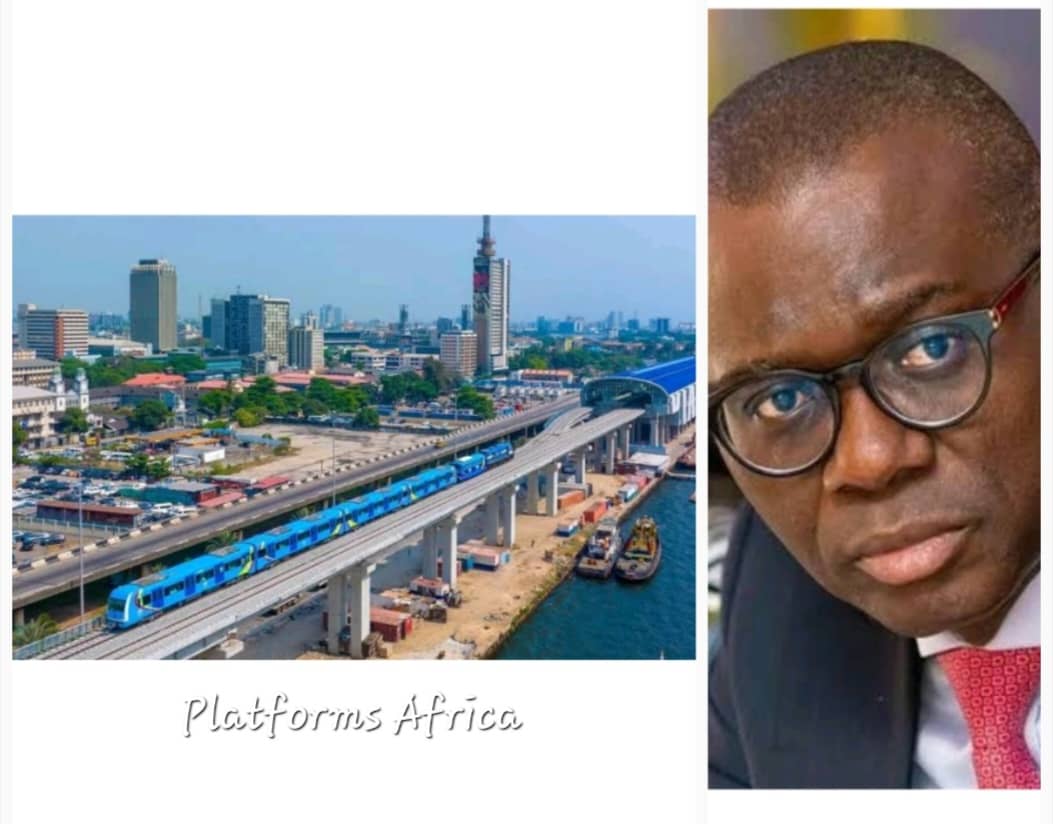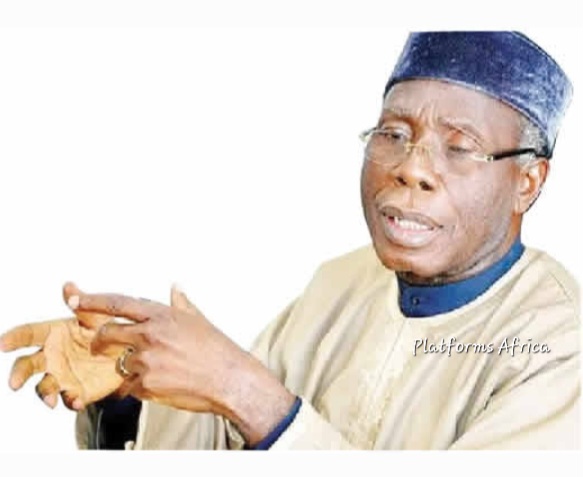. 84% Lagosians get water from private sources, 50% of waste generated in state is food waste, and others; Researchers unearth emerging findings hampering city’s development
The African Cities Research Consortium (ACRC), a multi-city research project, has concluded its research on key sectors of socio-economic development of the city of Lagos, revealing causes of, and providing solutions to seemingly intractable developmental challenges confronting the state.
Platforms Africa reports that the key findings of the research were presented recently by the consortium’s City Lead and Professor of Urban Development and Governance at the University of Lagos (UNILAG), Akoka, Taibat Lawanson, during the 2023 edition of an annual education summit by the Education Writers’ Association of Nigeria (EWAN), a body of journalists reporting educational matters in Nigeria and beyond.
The research, according to Professor Lawanson, was titled: “Lagos City of Systems: Food Security, Health and Safety, Environmental Sustainability”.
READ ALSO:
BREAKING: Lionel Messi Wins FIFA Men’s Player Of The Year Award
Policemen Not Permitted To Search Citizens’ Phones – Lagos CP
‘For Daring To Petition EFCC,’ FGC Ijanikin Suspends Students, Stirs Controversy
She said the project, which is currently being undertaken across 12 African cities, “presents an opportunity for researchers and practitioners to work together to achieve a shared understanding of the political economy of African cities in order to identify and address the critical challenges the cities are facing.”
The project’s aim, according to the scholar, is to generate insights and evidence that will help improve the living conditions, services and life chances of all city residents, particularly for disadvantaged communities.
The research, Platforms Africa reports, is an investment by the Foreign, Commonwealth and Development Office (FCDO) of the United Kingdom, which is targetted at funding “new, operationally-relevant research to address intractable development challenges in African cities”.
READ ALSO:
MURIC Asks Nigerian Govt To Approve Four Months Leave For Widows
Snakes On The Loose As Heatwaves Worsen; 8 Tips To Stay Safe
According Professor Lawanson, the project’s domains of interest in Lagos are structural transformation, safety and security, neighbourhood and economic district development and housing.
Researchers have been working over the last two years and have, according to Lawanson, identified priority complex problems which she pledged will be addressed through action research and advocacy over the next five years.
“All Priority complex problems align with the Lagos State Economic Development Plan (2032 – 2052) and the THEMES+Agenda of the Lagos State Government,” she said.
Key Findings
The don who listed some emerging findings in the Lagos city which she noted cut across nine city systems and four domains of the research focus, said from healthcare sector to transportation, water and sanitation, waste management, energy, food distribution, finance and ICT, law and order, and education, the research offered recommendations to address obvious gaps.
On the healthcare sector, Professor Lawanson said the term “spatial injustice” refers to the city’s unequal distribution of health facilities and personnel, even as she said the distribution is skewed towards Lagos Island, a highbrow area.
She added that brain drain within the healthcare sector has led to an exodus of health workers from the state abroad, adding that the state’s paper-based record system made it difficult to get real-time disease surveillance systems in the city.
She said her team raised some fundamental questions about reconciling the brain drain and what interventions are necessary to mitigate against the impact.
The researcher said: “We also considered how healthcare facilities could be more equitably distributed; the role of technology in health management; the effect of the commodification of healthcare on healthcare mandate, and the impacts of the infrastructural gains of COVID-19 on the healthcare infrastructure in Lagos “given extensive investments across the board and Lagos, being a beneficiary of so many health funds towards addressing the pandemic.”
Also, the researcher said Lagos State has a daily water demand of 3.83 billion litres per day as of 2021 but that only 40 per cent of this is provided by the Lagos Water Corporation (LWC) daily, and that less than 16 per cent of the population gets water from the corporation consistently.
She said informal service providers, “especially at community levels are either unrecognised or criminalised, even though informal water provisioning is more reliable- though largely unsafe.
“Despite official rhetoric, sanitation is not prioritised and no LGA in Lagos State has been declared open-defecation free. There are no clear operational procedures, technologies, facilities, and safety mechanisms in place to oversee sanitation work or workers, and workers have limited access to occupational health and safety protection measures,” the research further noted.
She advised the government to consider reconciling what she described as the position of “water as an economic good and the view of civil society of water as a social justice.”
“How can we recognise, upscale, and regulate the activities of local water and sanitation service providers? This is because unlocking the potential of those who work in the sector will catalyse improvement in that sector,” she added.
Waste management
The professor said the research revealed that 50 per cent of waste generated in Lagos is food waste, noting that though the city has the longest history of organised solid waste management in Nigeria, “it has been unsuccessful with waste separation from source.
“The research identified huge informal sector participation in the waste sector, though with recurrent prohibitions by official waste regulators, and found plastics and recyclable products as an emerging resource, largely driven by informal actors.”
To address the concerns around waste management, the researcher suggested “mainstreaming the process of informal waste worker formalisation, especially waste pickers, recyclers, dumpsite sorters, among others.”
Some of the emerging findings identified by the research are lised below:
There are conflicting roles of the state functioning as both regulator and service provider in a lot of infrastructure where you see the state having vested interests beyond the role of ensuring that things work.
Intense demand and supply deficit in urban infrastructure.
The local governance system is imperil largely because of the incapacity of the local government system, and so the state will have to take up more than it is constitutionally mandated to do.
We find in the cosmopolitan city like Lagos their challenges of politics of identity where ethnic nuances often colour a lot of ground politics like in the market and communities especially with access to urban resources.
We found the influence of land-holding families very strong, and then this spiral into spacial configuration as well as land contestation.
Economically, there is dominant informality, and where there are deficit infrastructure provisioning, we found informal vendors bridging the gaps.
However, there is a need for recognition and mainstreaming of their services and activities.
Professor Fagbohun comments
Reviewing the recommendations after the presentation, a Professor of Environmental Law and former Vice-Chancellor of Lagos State University (LASU), Olanrewaju Fagbohun, said apart from the fact that the report is comprehensive, it is captured in very simple language “and you have broken it down into the different sectors.”
He said that as an outcome of empirical studies, the recommendations must be embraced by all, “particularly the state government.
“If we are going to implement this document, the government must be ready to invest in it, and no investment will be too much if we consider the focus as a sustainable city. We must therefore consider participatory cooperative research approach and knowledge cocreation so that the local communities can be carried along,” Mr Fagbohun said.
Government reacts
Reacting on behalf of the Lagos State Commissioner for Basic and Secondary Education, Jamiu Alli-Balogun, the Director of Education Resource Centre, Omolayo Akinlade, thanked the consortium for the efforts, and pledged the support of the state in the implementation of the recommendations.
“The administration of Governor Babajide Sanwo-Olu is is a listening one, and that is clearly evident in the passion and commitment towards achieving the T.H.E.M.E.S plus agenda, which have incorporated almost all the sectors touched in the research,” she said.
Mrs Akinlade said she would make the document available to the commissioner but pleaded with the organisers of the event- EWAN to provide avenue for all the concerned ministries and agencies to have access to the recommendations.
ACRC operational cities
The research consortium currently operates across 12 African cities of Lagos, Maiduguri in Nigeria; Accra (Ghana), Addis Ababa (Ethiopia), Kampala (Uganda), Dar es Salaam (Tanzania), Freetown (Sierra Leone), Mogadishu (Somalia), Nairobi (Kenya), Lilongwe (Malawi), and Bukavu in the Democratic Republic of Congo.
According to Mrs Lawanson, the consortium is tasked with rethinking approaches to urban policies and programming.
EWAN Summit
Annually, EWAN organises summit on key issues within and around the education sector with the sole purpose of bringing together relevant stakeholders to identify solutions and ensure proper implementation.
The last edition, where ACRC’s research findings were presented, was themed: “Research for National Development: Nigeria’s Internal Security in Focus”.
The keynote speaker was the immediate past Vice-Chancellor of the University of Lagos (UNILAG), Akoka, who is currently the Chairman of Lagos State Research and Innovation Council (LASRIC), Oluwatoyin Ogundipe, a professor.
The forum drew critical stakeholders from government, industries, and academia, including vice-chancellors and rectors, and representatives of civil society and the labour union.





